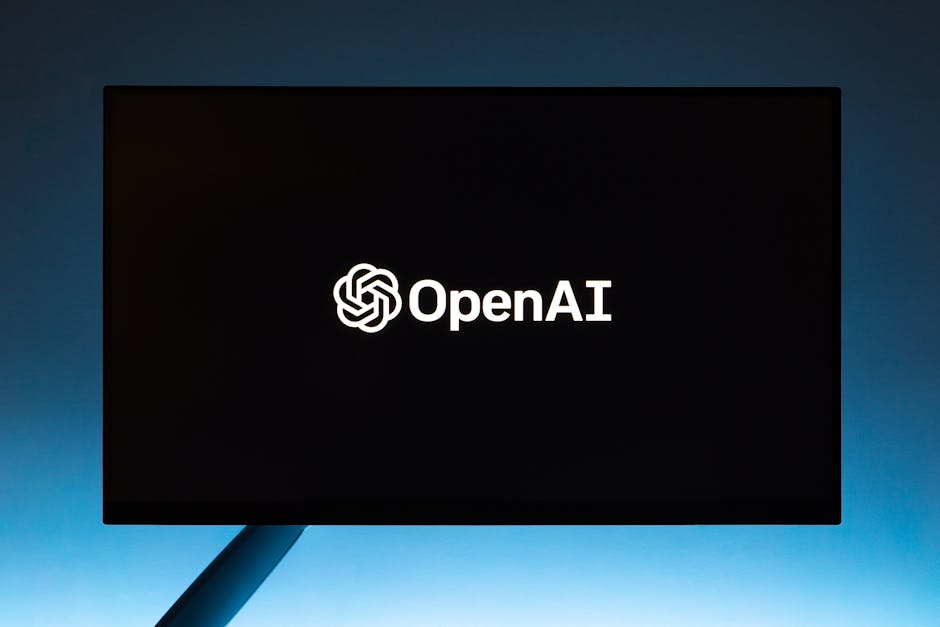Growth Marketing in 2025: Proven Strategies to Accelerate Your Brand
Growth marketing is the focus keyword for this article, and it represents the driving force behind the most successful brands in 2025. As competition intensifies and digital landscapes evolve, leveraging growth marketing is essential for brands seeking sustainable expansion and next-level innovation. At InnExo, where next-level innovation starts here, we explore the strategies and trends that will define growth marketing this year and beyond.
Understanding Growth Marketing: Beyond Traditional Marketing
Growth marketing is not just a buzzword—it’s a methodology that prioritizes experimentation, agility, and customer-centricity. Unlike traditional marketing, which often focuses on top-of-funnel awareness and broad campaigns, growth marketing is about full-funnel optimization. It encompasses acquisition, activation, retention, referral, and revenue, ensuring that every stage of the customer journey is optimized for growth.
In 2025, growth marketing is characterized by:
- Data-driven decision making: Marketers leverage analytics and customer insights to inform every strategy and tactic.
- Personalization at scale: Brands use advanced segmentation and AI-powered tools to deliver tailored experiences that drive loyalty and conversion.
- Continuous experimentation: Growth marketers run A/B tests, iterate campaigns, and pivot quickly based on real-time feedback.
- Holistic approach: Growth marketing breaks down silos between departments, aligning product, sales, and marketing teams toward shared objectives.
This shift from static campaigns to dynamic, iterative growth loops enables brands to respond rapidly to market changes and customer needs. As a result, growth marketing is the foundation for brands aiming to outperform competitors and achieve lasting success.
The Power of Personalization in Growth Marketing

Photo by Alexander Grey on Pexels
Personalization has become a non-negotiable element of effective growth marketing. In 2025, brands that excel at personalization are reaping significant rewards, including increased revenue, higher customer retention, and stronger brand loyalty.
Personalization goes beyond using a customer’s name in an email. It involves leveraging data to understand behaviors, preferences, and pain points, then delivering relevant content and offers at the right moment. According to recent research, consumers are far more likely to purchase from brands that provide personalized experiences tailored to their needs.
Key personalization strategies include:
- Dynamic website content: Adjusting website messaging and offers based on user behavior and demographics.
- Email segmentation: Sending targeted campaigns based on purchase history, engagement, and lifecycle stage.
- Product recommendations: Using AI to suggest products or services that align with individual customer interests.
- Behavioral triggers: Automating communications based on specific actions, such as cart abandonment or repeat purchases.
Brands that invest in personalization see higher engagement rates, improved conversion, and a measurable lift in lifetime customer value. In a crowded market, personalization is the key differentiator that can set your brand apart.
Leveraging AI and Automation for Scalable Growth

Photo by Andrew Neel on Pexels
Artificial intelligence (AI) and automation are revolutionizing growth marketing in 2025. These technologies empower marketers to analyze vast amounts of data, predict customer behavior, and automate repetitive tasks, freeing up time for strategic initiatives.
AI-driven growth marketing includes:
- Predictive analytics: Using machine learning to forecast trends, segment audiences, and personalize outreach.
- Dynamic creative optimization: Automatically adjusting ad content based on real-time performance data to maximize engagement.
- Conversational AI: Implementing chatbots and virtual assistants to enhance customer service and guide prospects through the sales funnel.
- Content generation: Leveraging AI tools to produce high-quality, relevant content at scale.
According to industry reports, over 90% of marketers say AI has transformed their roles, enabling them to deliver more impactful campaigns and measure ROI with greater accuracy. The integration of AI into enterprise software is projected to boost revenues significantly, making it a competitive advantage for early adopters.
For growth marketers, embracing AI and automation is no longer optional—it’s essential for staying ahead in a rapidly evolving digital landscape.
Data-Driven Storytelling: The New Content Marketing Paradigm

Photo by Judit Peter on Pexels
Content marketing remains a cornerstone of growth strategies, but the approach has evolved. In 2025, data-driven storytelling is the new paradigm, blending creativity with analytics to produce content that resonates and converts.
Short-form video content, interactive experiences, and personalized narratives are dominating engagement metrics. Brands are moving beyond traditional blog posts to create immersive stories that capture attention and drive action. The most successful content strategies are informed by:
- Audience insights: Deep understanding of customer interests, challenges, and preferences.
- Performance analytics: Continuous monitoring of content effectiveness and optimization based on real-time data.
- Omnichannel distribution: Delivering content across multiple platforms—social media, email, video, and web—to reach audiences where they are most active.
Storytelling powered by data not only builds brand authority but also drives measurable growth. By aligning content with the customer journey and leveraging analytics, brands can maximize the impact of every piece of content they produce.
Influencer Partnerships: Authentic Connections for Brand Growth

Photo by Anna Nekrashevich on Pexels
Influencer marketing continues to be a powerful lever for growth in 2025. Today’s consumers trust recommendations from influencers they follow, often more than traditional advertisements. Strategic partnerships with influencers who align with your brand values and target audience can significantly boost brand awareness, credibility, and conversions.
Key considerations for effective influencer marketing include:
- Alignment: Collaborate with influencers whose audience closely mirrors your own ideal customer profile.
- Authenticity: Focus on genuine partnerships that allow influencers to share your brand story in their unique voice.
- Micro-influencers: Don’t overlook smaller influencers with highly engaged communities; they often deliver better ROI than mega-celebrities.
- Integrated campaigns: Combine influencer content with your broader marketing efforts for maximum impact.
By prioritizing authentic influencer relationships, brands can tap into new audiences, generate buzz, and accelerate growth in a crowded digital landscape.
Social Media and Search: Winning in a Changing Landscape

Photo by Tracy Le Blanc on Pexels
Social media and search are undergoing rapid transformation in 2025. Platforms like TikTok and Instagram are becoming primary discovery engines for younger audiences, while voice search and AI-driven search experiences are reshaping how users find information.
To win in this changing landscape, growth marketers must:
- Embrace social search: Optimize content for discovery on social platforms, leveraging hashtags, trends, and platform-specific SEO.
- Invest in video: Short-form videos deliver higher engagement and are favored by algorithms across major platforms.
- Leverage first-party data: As third-party cookies fade, building direct relationships with customers and collecting consented data becomes crucial.
- Integrate paid and organic: Combine paid social and search advertising with organic content to drive consistent visibility and engagement.
Staying ahead requires agility, experimentation, and a willingness to adapt to new platforms and user behaviors. By mastering social media and search, brands can maintain relevance and drive sustained growth.
Building a Growth Marketing Culture: Teams, Tools, and Mindset

Photo by Valeriia Miller on Pexels
Growth marketing success hinges on more than tactics—it requires the right culture, teams, and tools. In 2025, leading brands are fostering environments that encourage experimentation, cross-functional collaboration, and continuous learning.
Key elements of a growth marketing culture include:
- Agile teams: Small, cross-functional teams empowered to test, learn, and iterate quickly.
- Data literacy: Training team members to understand and act on analytics and performance metrics.
- Technology stack: Investing in integrated marketing platforms, automation tools, and AI solutions that streamline workflows and enhance decision-making.
- Growth mindset: Encouraging curiosity, resilience, and a willingness to embrace failure as a path to innovation.
By building a culture that values growth, experimentation, and continuous improvement, brands can unlock new opportunities and drive long-term success in an ever-changing market.
Measuring Growth Marketing Success: Metrics That Matter

Effective growth marketing is measurable. In 2025, marketers are moving beyond vanity metrics to focus on KPIs that truly reflect business impact. The most important metrics include:
- Customer Acquisition Cost (CAC): How much it costs to acquire a new customer.
- Customer Lifetime Value (CLV): The total revenue generated from a customer over their relationship with your brand.
- Retention Rate: The percentage of customers who continue to engage and purchase over time.
- Conversion Rate: The proportion of leads or visitors who take a desired action.
- Return on Investment (ROI): The overall effectiveness and profitability of marketing initiatives.
Regularly tracking and analyzing these metrics enables marketers to optimize campaigns, allocate resources efficiently, and demonstrate the tangible value of growth marketing efforts.
Future-Proofing Your Growth Marketing Strategy

Photo by Artem Podrez on Pexels
Growth marketing is a dynamic discipline, and staying ahead requires continuous adaptation. As we look to the future, brands must be prepared to:
- Embrace emerging technologies: Stay informed about AI, automation, and new marketing platforms.
- Prioritize customer experience: Deliver seamless, personalized journeys across all touchpoints.
- Invest in talent: Equip teams with the skills and tools needed to thrive in a data-driven environment.
- Foster innovation: Encourage creative problem-solving and a willingness to experiment.
By adopting a forward-thinking approach and leveraging the latest growth marketing strategies, brands can achieve next-level innovation and sustained success. At InnExo, we believe that the future belongs to those who are willing to innovate, adapt, and put growth at the center of their marketing strategy.
Sources
- https://digitalmarketinginstitute.com/blog/digital-marketing-trends-2025
- https://www.deloittedigital.com/nl/en/insights/perspective/marketing-trends-2025.html
- https://www.wsiworld.com/blog/the-future-of-marketing-strategy-5-predictions-for-2025
- https://mountain.com/blog/growth-marketing-strategy/
- https://www.youtube.com/watch?v=0sXYuIHPVik





